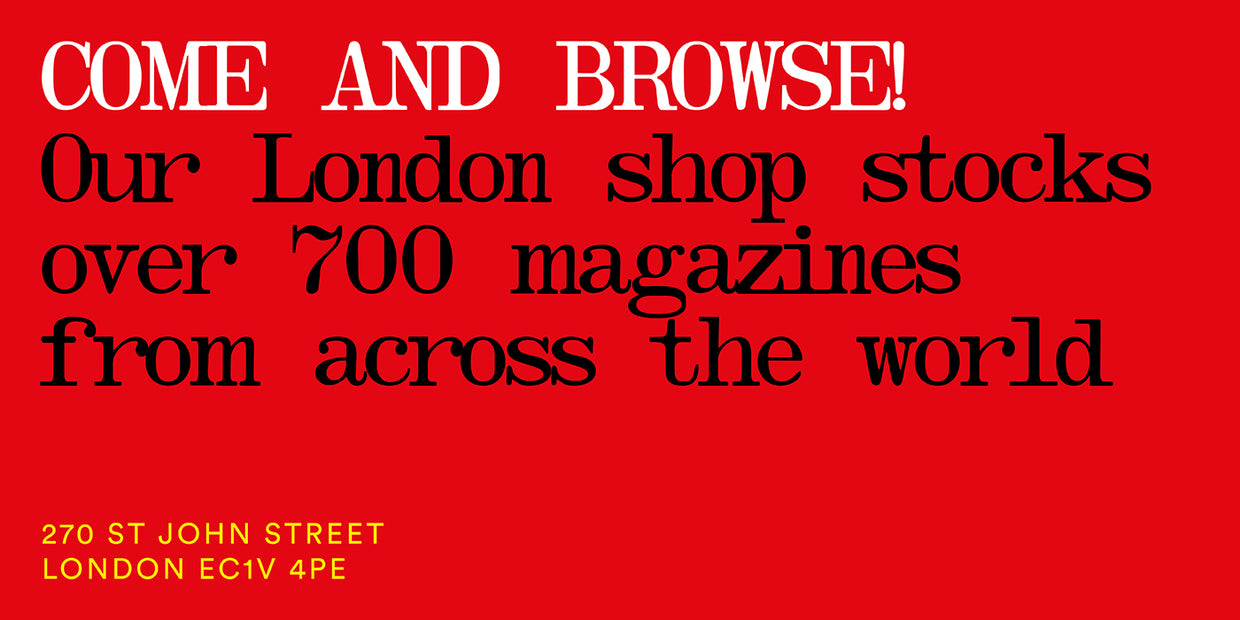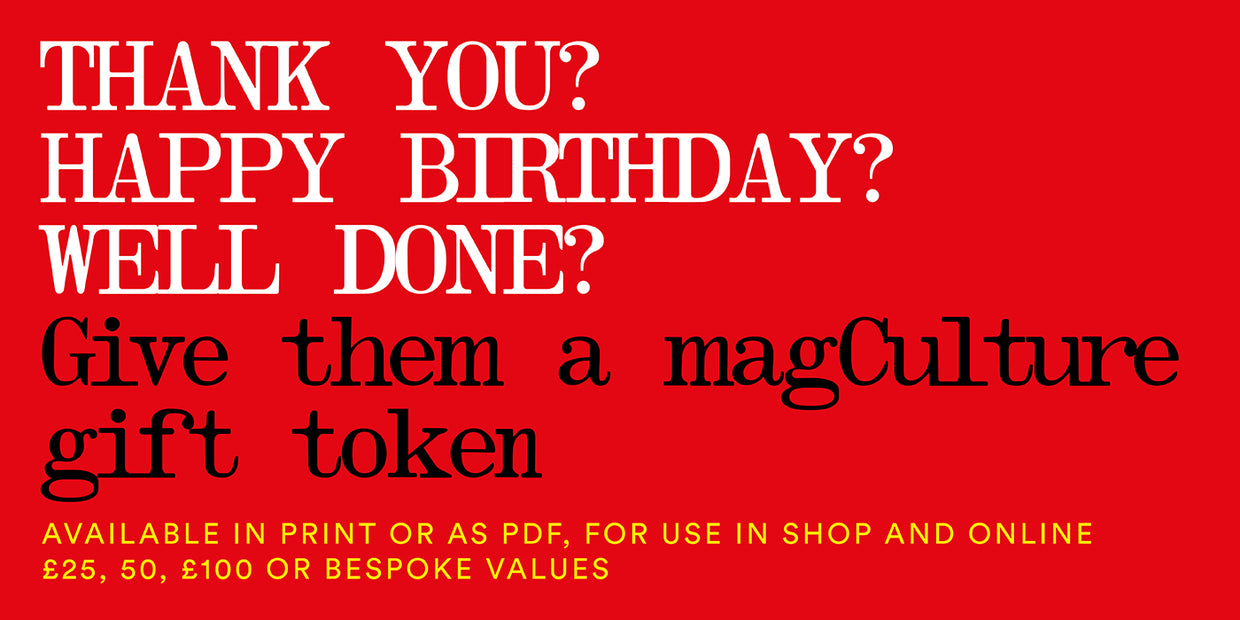
magCulture Live 2020 • Day one
Last week magCulture Live 2020 took place on Zoom; here we reflect on the first of the two sessions.
Since the beginning of this year, the coronavirus pandemic has wreaked havoc the world over. The Black Lives Matter movement has gained incredible momentum (alas, the aftershock of multiple cases of police brutality); and the recent US election saw not just America, but much of the world hold their breath. Still, for the two days that we came together for magCulture Live, a small corner of silver linings were gratefully found.
For those publications who’ve weathered the storms, the repercussions of such society-shaking events have equally shaken up the world of independent and mainstream magazines. It's pushed writers, editors and designers alike to take a step back and identify what it is that their publications are about at their most stripped back and essential: What do these magazines represent at their core? And what, if anything, do they stand for?
DAY ONE • Analogue
Split across two days, Day One: Analogue and Day Two: Activism, magCulture Live 2020 saw speakers from the international industry address the world events of the last 11 months to how magazines have responded and will, evidently, continue to respond.

Opening the first day, critic and author Steven Heller (printmag.com) presented a fascinating history of ‘provocazines’ from around the world.

‘I wanted to be a part of this world of paper, of ink,’ Heller told the 190 viewers who’d tuned in. Spanning the last century and invoking mainly US titles such as The Other, Rolling Stone, Mother Earth, Rat and The Black Panther newspaper, to more recent publications including Dope, Good Trouble, The Funambulist and The New York Times who, in Heller’s words – ‘became much more of an advocate for truth, democracy, and anti-Trumpism this last year’ – he ended his century-spanning presentation ‘360 degrees from where
Instead of creating alternative activist media from the ground up, today it’s ‘the mainstream who are taking a stand

From there on out, the themes of Analogue and Activism ran parallel to one another with Alice Grandoit, editor of first-issue design publication Deem Journal, explaining Deem’s core goal as ‘the act of democratising design’, standing for a repackaging of design ‘as social practice’, and a ‘shifting of power towards communities’, the human and the organic. At Deem’s core then, ‘an invitation for others to come and participate.’

Following a similar thread, Sachini Imbuldeniya, introduced Studio Pi, her newly launched agency for photographers and illustrators creating ‘a space for fresh new talent’ where, ‘candidates are assessed solely on their work’ though the use of blind panels, addressing directly the lack of diversity at the heart of the UK’s creative industries.

Based on her own experiences of prejudice in the creative industry, Studio Pi’s artists are exclusively people of colour, women, those living with disabilities or from working class backgrounds. After only two months, the new agency is already busy – Sachini shared a series of published images from her artists.
And Karl Henkell, founder of Record Culture magazine, gave an overview of the magazine’s lifespan thus far, inviting us to revisit issue-launch parties through his own photographic archive, before harking back to a need to reevaluate Record’s core values: ‘As Record has grown, we’ve felt a growing responsibility to respond to world-wide events,’ describing this responsibility as a ‘natural progression’ for platform-holding publications.
Enmeshing the two themes further, Maya Moumne, co-founder of the Beirut-based Journal Safar, gave a full-hearted introduction to the bilingual visual culture and graphic design magazine.
She told how, with the publication of their Nostalgia Issue, more people began to ‘take notice’, following a shift from a more experimental design approach, then went on to explain how Studio Safar was all but destroyed in the devastating Beirut Explosion on 4 August 2020.
‘For us, design and politics go hand-in-hand,’ she told her audience. ‘Publishing on social media is a form of publishing,’ detailing how, following the explosion, Studio Safar turned to their social media accounts both to urge people to join protests and to call out BLOM Bank Lebanon for charging the small business ‘unreasonable amounts’ in bank fees amidst the crises. This form of publishing saw the bank apologise and agree to reimburse some of those payments.
Bringing Day One to a close, came two equally rich presentations from critic and author Rick Poyner and Empire’s longstanding editor-in-chief, Terri White. Poyner, who recently published the book David King: Designer, Activist and Visual Historian, gave a wonderful introduction to King’s ‘unmissable’ work.

‘It’s designed to grab your attention.’ From his political posters, to the covers he created for the now-defunct London listings mag City Limits, Poyner told how, ‘In retrospect, we can see

Where Poyner’s enthusiasm brought a renewed energy to the penultimate talk of the day, Terri White’s reinvigorated everyone with a sense of hope and purpose.
‘Film culture is a living, breathing force,’ she began, explaining how during the course of the coronavirus outbreak, and as cinemas began closing their doors, she had had to ask herself: ‘What is the DNA of Empire? Through that questioning, the Empire team found the crisis ‘freeing’ them to ‘return to that DNA.’

‘
‘We have massive ideas for 2021. I have never been more convinced of the power of magazines.’
Liked this post? Read our report from day two: Analogue. @wordsbydanielle
All ticket-holders should now have received a link to the Zoom recording of the event.
Thank you to all the speakers and our audience for making this first full-sized virtual version of magCulture Live so successful
Thanks too, to our partners for their support in bringing the event to life digitally:








